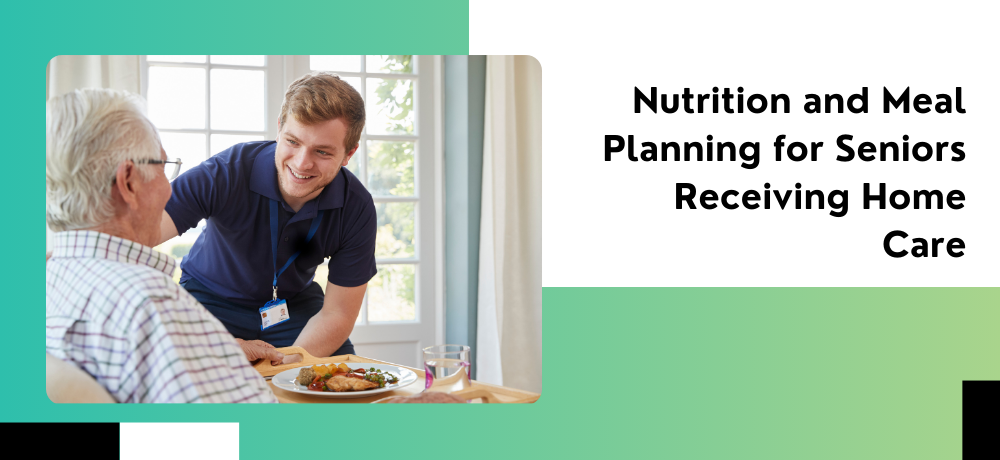Nutrition and Meal Planning for Seniors Receiving Home Care

Ensuring proper nutrition is a vital aspect of home care for seniors. As a dedicated home health provider at Argus Home Health, I understand the significance of a well-balanced diet in promoting the health and well-being of our elderly clients.
Individualized Nutrition Assessment:
Conduct a thorough assessment of each senior's nutritional needs, taking into consideration their medical history, dietary preferences, and any existing health conditions. Collaborate with healthcare professionals to identify specific dietary requirements such as restrictions on sodium, sugar, or certain nutrients. This individualized approach ensures that meal plans are tailored to meet the unique nutritional needs of each senior.
Balanced and Nutrient-Rich Meal Plans:
Design well-balanced meal plans that focus on providing essential nutrients crucial for seniors' health, including adequate protein, fiber, vitamins, and minerals. Prioritize foods rich in calcium and vitamin D to support bone health, and include sources of omega-3 fatty acids for cardiovascular and cognitive well-being. Ensure variety in food choices to enhance the nutritional diversity of the diet.
Addressing Common Senior Health Concerns:
Consider prevalent health issues among seniors, such as diabetes, hypertension, and digestive problems, when planning meals. Opt for complex carbohydrates, lean proteins, and high-fiber foods to manage blood sugar levels and support digestive health. Additionally, incorporate foods with heart-healthy properties to promote cardiovascular well-being and manage sodium intake for those with hypertension.
Adaptations for Dietary Challenges:
Address any challenges seniors may face in chewing or swallowing by modifying the texture of foods as needed. Consider incorporating softer or pureed options for those with difficulty chewing, and provide appropriate portion sizes to accommodate potential appetite changes. Encourage hydration by including hydrating foods and providing easy access to water throughout the day.
Regular Monitoring and Adjustment:
Establish a system for regular monitoring of the seniors' nutritional status and adjust meal plans accordingly. Regularly communicate with healthcare providers and family members to stay informed about any changes in the seniors' health that may necessitate adjustments to their dietary plans. Monitoring weight, energy levels, and overall well-being can help identify potential issues and allow for timely interventions to maintain optimal nutrition. Regularly solicit feedback from seniors to ensure satisfaction with meal choices, promoting a positive dining experience.
Optimize your loved one's health with personalized nutrition plans. Contact us today for expert home health assistance! To learn more about what we do, please click here. To contact us, please click here.
Get in touch with Argus Home Health today!